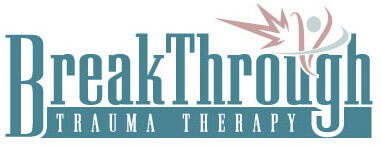Trauma is a mentally, physically, and emotionally exhausting condition. It robs even the most resilient person of joy, peace, security, self-assurance, and esteem. Nobody should go through life anxious, worried, fearful, or defeated because of past experience. While therapy is necessary for overcoming your ordeal, it may be beyond your budget.
Worry not if you find yourself worried about affording trauma therapy and the desire to be free from this debilitating mental condition. You can manage the symptoms and train yourself to cultivate resilience, mental strength to face your fears, and the discipline to resist destructive coping behaviors. Here are a few tried and tested treatments to try in the comfort of your home in your journey to recovery.
Comfort Yourself
 You have been through a lot. Avoid beating yourself over the ordeal. The traumatic experience may have scared you, but you survived. You are still standing. Encourage yourself. It took immense strength and resilience to go through the ordeal without throwing in the towel. Cry and laugh, go through the emotions. Acknowledge every feeling. Use them as pointers to understand yourself better.
You have been through a lot. Avoid beating yourself over the ordeal. The traumatic experience may have scared you, but you survived. You are still standing. Encourage yourself. It took immense strength and resilience to go through the ordeal without throwing in the towel. Cry and laugh, go through the emotions. Acknowledge every feeling. Use them as pointers to understand yourself better.
Embrace Mindfulness
 Awareness about the present keeps you from mulling over your ordeal or fretting about the future. Engage fully in every moment. Use grounding techniques to keep you focused on the present and disempower flashbacks and intrusive thoughts and memories. When those disturbing, uninvited thoughts creep in, look at your surroundings and describe them out loud. Count objects with a similar color in your presence.
Awareness about the present keeps you from mulling over your ordeal or fretting about the future. Engage fully in every moment. Use grounding techniques to keep you focused on the present and disempower flashbacks and intrusive thoughts and memories. When those disturbing, uninvited thoughts creep in, look at your surroundings and describe them out loud. Count objects with a similar color in your presence.
Journal Proactively
 A journal is a perfect outlet. It lets you pour out your thoughts and feelings. A behavior that feeds negative thought patterns common in traumatic conditions is suppression. When you avoid or restrain negative thoughts and emotions, it creates a rebound effect where you obsessively regurgitate or ruminate over them. Journaling helps you express your thoughts and feelings, reflect on them, and apply logic. It also enables you to track your progress. Are you healing? Did you get over a particular experience? How far are you on forgiveness or accountability? Write down everything. Be candid in your expressions.
A journal is a perfect outlet. It lets you pour out your thoughts and feelings. A behavior that feeds negative thought patterns common in traumatic conditions is suppression. When you avoid or restrain negative thoughts and emotions, it creates a rebound effect where you obsessively regurgitate or ruminate over them. Journaling helps you express your thoughts and feelings, reflect on them, and apply logic. It also enables you to track your progress. Are you healing? Did you get over a particular experience? How far are you on forgiveness or accountability? Write down everything. Be candid in your expressions.
Remain Physically Active
 An idle mind is the devil’s workshop. Keep yourself busy as soon as you are out of bed. Fill your schedule with meaningful activity. Start your day with a routine workout. Physical exercising boosts your feel-good biomolecules, which inhibit the stress response cycle and its hormones. You do not need a gym membership to increase your dopamine levels. A walk in the park, cycling, or jogging does the trick. If you do not have a 9 to 5 job or run a business, sign up for a class to polish or learn hobbies. Commit your time to volunteer causes. All these activities are rewarding. They trigger the release of dopamine and endorphins, which activate the reward pathway responsible for happiness, satisfaction, and motivation.
An idle mind is the devil’s workshop. Keep yourself busy as soon as you are out of bed. Fill your schedule with meaningful activity. Start your day with a routine workout. Physical exercising boosts your feel-good biomolecules, which inhibit the stress response cycle and its hormones. You do not need a gym membership to increase your dopamine levels. A walk in the park, cycling, or jogging does the trick. If you do not have a 9 to 5 job or run a business, sign up for a class to polish or learn hobbies. Commit your time to volunteer causes. All these activities are rewarding. They trigger the release of dopamine and endorphins, which activate the reward pathway responsible for happiness, satisfaction, and motivation.
Prioritize Rest
 After an activity-packed day, quality rest is vital. Be intentional about your sleep time. Sleep occurs in four cycles, essential in releasing hormones and biomolecules that heal and rejuvenate your body and mind, balance body-building hormones, and help you relax. All cycles require at least 8 hours to cultivate the benefits of rest. Establish a bedtime routine. Start winding down 30 minutes before bedtime. Deem the lights to stimulate the release of melatonin, the sleep hormone that peaks in the dark. Ensure your sleeping area is comfortable and inviting. Avoid staying awake while in bed or eating before bedtime. Keep your phone and television off.
After an activity-packed day, quality rest is vital. Be intentional about your sleep time. Sleep occurs in four cycles, essential in releasing hormones and biomolecules that heal and rejuvenate your body and mind, balance body-building hormones, and help you relax. All cycles require at least 8 hours to cultivate the benefits of rest. Establish a bedtime routine. Start winding down 30 minutes before bedtime. Deem the lights to stimulate the release of melatonin, the sleep hormone that peaks in the dark. Ensure your sleeping area is comfortable and inviting. Avoid staying awake while in bed or eating before bedtime. Keep your phone and television off.
Eat A Balanced Diet
 Your body and mind use nutrients from food to maintain health. Therefore, what you eat is essential to overcome anxiety and stress resulting from trauma. For instance, vitamin D plays a role in reducing depressive symptoms. Food rich in these vitamins includes seafood. Seafoods also have beneficial oils that the brain uses to optimize operations, especially in cognitive function and memory formation and retrieval. B vitamins are excellent for enhancing nerve health and performance. They provide energy for neuron transmission, influence neurotransmitter action, and regulate stress and feel-good hormones. B vitamins are plenty in legumes, organ meat, cruciferous plants, and fortified foods.
Your body and mind use nutrients from food to maintain health. Therefore, what you eat is essential to overcome anxiety and stress resulting from trauma. For instance, vitamin D plays a role in reducing depressive symptoms. Food rich in these vitamins includes seafood. Seafoods also have beneficial oils that the brain uses to optimize operations, especially in cognitive function and memory formation and retrieval. B vitamins are excellent for enhancing nerve health and performance. They provide energy for neuron transmission, influence neurotransmitter action, and regulate stress and feel-good hormones. B vitamins are plenty in legumes, organ meat, cruciferous plants, and fortified foods.
Hydrate
 Water is the medium where all biochemical reactions in your body occur. Your nervous system requires water to produce, balance, and manage neurochemicals and coordinate nerve cells. Ensure to drink the amount that correlates to your BMI. Remember, any fluids you take, including soup, contribute to your daily water intake.
Water is the medium where all biochemical reactions in your body occur. Your nervous system requires water to produce, balance, and manage neurochemicals and coordinate nerve cells. Ensure to drink the amount that correlates to your BMI. Remember, any fluids you take, including soup, contribute to your daily water intake.
Additionally, ensure your drinking water has useful electrolytes and minerals. Water requires salts to enter your cells. Without adequate minerals, the body removes most of what you drink through the urine.
Limit Your Screen Time
 Information overload will trigger your trauma by overwhelming your ability to rationalize intrusive thoughts and emotional outbursts. Entertainment or social media content can also sensitize or desensitize your feelings and thoughts. They can become an avoidant behavior, impeding any effort toward understanding and confronting trauma.
Information overload will trigger your trauma by overwhelming your ability to rationalize intrusive thoughts and emotional outbursts. Entertainment or social media content can also sensitize or desensitize your feelings and thoughts. They can become an avoidant behavior, impeding any effort toward understanding and confronting trauma.
Carefully select what you are watching. Choose programs or movies that encourage healing and retrospection. You may need to mute people or avoid spaces that trigger your pain until you heal.
Stay Close to Friends and Loved Ones
 Social support is essential when dealing with trauma. Your loved ones stimulate the reward pathway, which is also responsible for evoking feelings of belonging. The encouragement, advice, and rebuke from loved ones are vital for healing. They also keep you accountable because trauma augments your affinity for maladaptive behavior.
Social support is essential when dealing with trauma. Your loved ones stimulate the reward pathway, which is also responsible for evoking feelings of belonging. The encouragement, advice, and rebuke from loved ones are vital for healing. They also keep you accountable because trauma augments your affinity for maladaptive behavior.
Resist the urge to stay alone. The depressive and anxious episodes will make you repulsive toward socialization and corrode your relational bonds. Always learn from every emotional outburst, fear of commitment, heightened insensitivity, and lack of trust. Trauma cuts through every aspect of relationships. Understand its implications in your relationships. Use logic to navigate each traumatic episode.
Use Calming Techniques
 When incidences of flashbacks, intrusive thoughts and memories, and nightmares occur, learn to calm yourself down. Use breathing techniques to take away your focus from the ordeal. Play soothing music, paying attention to the rhythm to slow your racing heart and breathing rate to sync with the song’s rhythm. Remember, the ordeal is past. You are safe.
When incidences of flashbacks, intrusive thoughts and memories, and nightmares occur, learn to calm yourself down. Use breathing techniques to take away your focus from the ordeal. Play soothing music, paying attention to the rhythm to slow your racing heart and breathing rate to sync with the song’s rhythm. Remember, the ordeal is past. You are safe.
Contact Us

